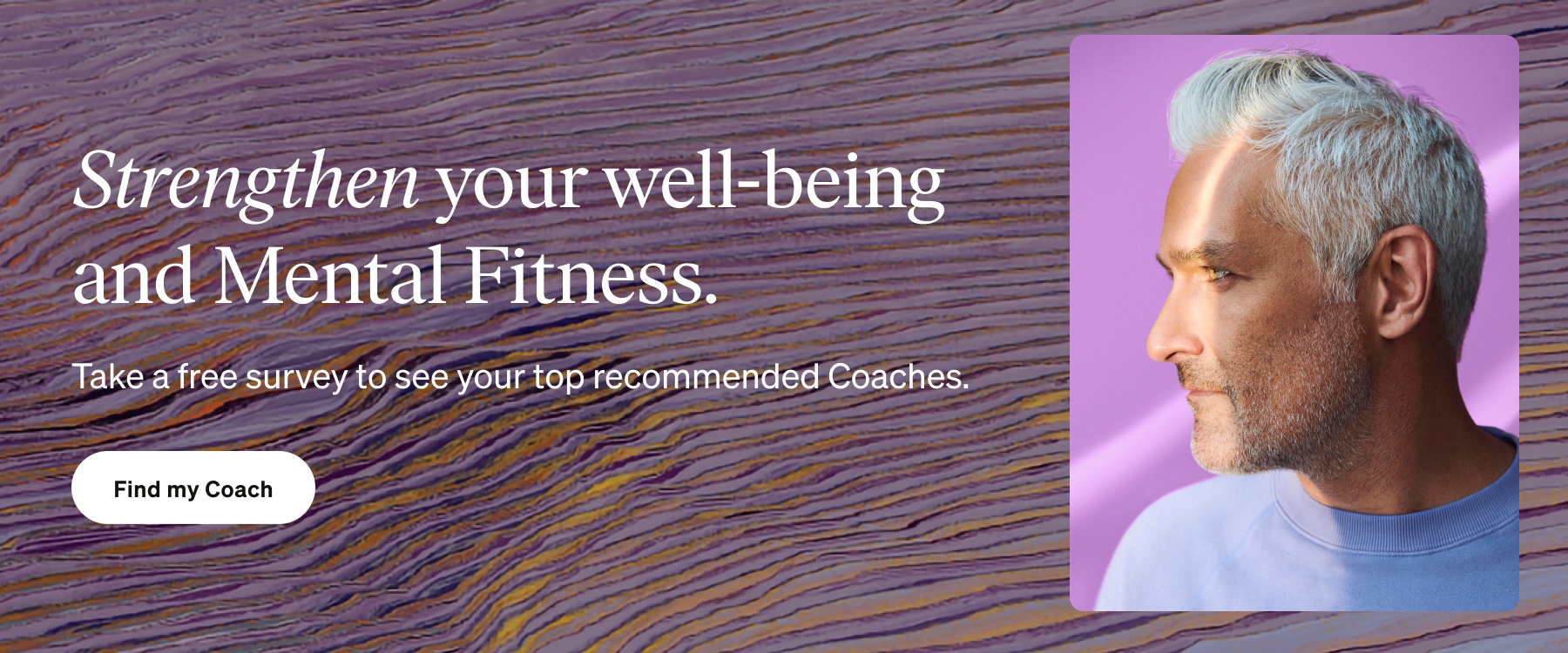
Many of us have felt a pang of regret over an embarrassing story we told at work or an awkward detail we shared with a stranger.
Maintaining relationships with those around us — even those we don’t know well — can be challenging, and we’re all bound to overshare from time to time.
But if you notice it becoming a habit, or you’re constantly wondering, “How do I know if I'm oversharing?” it might be a sign you need to reflect on your social tendencies.
Remember that no one’s immune to slip-ups. In fact, research has shown that the older we get, the more we overshare. But discovering how to read the room and identifying the triggers that lead you to too many details will help curb this behavior.
Read on to learn how to stop oversharing and making those around you feel uncomfortable.
What is oversharing?
Oversharing is when we say more than we should. When we’re talking to a friend, stranger, or coworker, there’s a level of emotional intimacy that’s appropriate for that relationship.
We should reserve sharing the most private aspects of our lives with those closest to us, but sometimes we slip up and cross a line by getting too personal too fast.
On social media, we condense our lives into shareable moments for friends, family, and strangers. We’re often met with docuseries dissecting peoples’ personal lives or celebrity gossip online or on TV.
There’s a difference between authenticity and oversharing. We should feel confident living as ourselves, maintaining our values, and sharing who we are or how we feel. Being honest and vulnerable is part of living authentically — but when done for the wrong reasons or in the wrong settings, it becomes oversharing.
Telling a friend about a source of sadness can be cathartic and healing. But making that same admission to a colleague we don’t know is likely to make them uncomfortable.
Here are some oversharing examples to paint a clearer picture:
When we need support, it’s important to reach out to those we trust. But if we’re not choosing the right time, place, or source to find comfort, we open ourselves up to unkindness and risk making others feel unsafe.

Is it bad to overshare?
Oversharing is often an accident, meaning we didn’t do it with the intention of making someone uncomfortable. Done safely, it can sometimes lead to much-needed validation or a caring community that understands your challenges. It can also be a source of comfort to others in similar circumstances.
Unfortunately, this type of productive oversharing is a rare occurrence.
In social settings, chronic oversharing can alienate us from people uncomfortable with our level of candor. Professionally, coworkers may be reluctant to include us in projects because they worry we’ll cross boundaries.
Plus, relying on approval or validation from others can be detrimental to our mental health, especially when those listening aren’t prepared to navigate intense personal information.
Not getting the desired responses in person or from our social media audience creates anxiety and feelings of dissatisfaction while lowering self-esteem. This might lead us to share even more private information in the hopes that someone will eventually react the way we’re hoping for.
Why do people overshare?
People overshare for many reasons, from loneliness to anxiety. Identifying what prompts us to blurt out personal details goes a long way toward preventing the next inappropriate confession. Here are some common triggers for oversharing:
1. False intimacy
When people help you with a task that requires trust, such as cutting your hair or painting your nails, it creates a sense of closeness. People mistakenly respond to this time spent together by treating their stylist as a close friend and disclosing personal details of their lives.
This might be why you tell your coworkers random facts about you — spending all that time together can create an illusion of closeness.

2. The comfort of strangers
Have you ever sat next to a complete stranger in a waiting room or airport lounge and found yourself chatting like old friends? It’s not uncommon. Unburdening ourselves to someone who doesn’t know us and whom we’ll likely never see again can reduce feelings of social anxiety.
When we don’t feel there will be lasting social consequences, we might confess more than we would to a close friend.
3. Fast-tracking relationships
Developing a new relationship is stressful. Whether it’s the first day at a job or a blind date, it’s natural to feel anxious about making conversation with a stranger.
Some people want to skip over the awkward getting-to-know-you phase by sharing personal details in hopes of taking the relationship to the next level. But moving too fast and delving into deep admissions or secrets can make the person we’re talking to uncomfortable.
4. Going out of bounds
Sometimes, we’re inappropriate without meaning to be. People who struggle to identify others’ boundaries may disrespect them unintentionally by sharing stories or struggles they don’t feel awkward talking about.
If our parents modeled oversharing as a normal behavior, we might inherit a lack of discretion as a result.
5. Putting someone at ease
When confronted by an oversharer, a sympathetic person may respond with their own intimate details to make the other person comfortable. We want those around us to feel safe and heard — and this instinct could prompt us to overshare ourselves.
Recognizing yourself in any of these scenarios doesn’t mean you chronically overshare, but it should be a reminder to be mindful of the information you disclose to others, particularly people you don’t know well.

How to know if you overshare
We all slip up on occasion and divulge more than is wise. It’s natural. But it might be time to evaluate your conversation skills if you regularly notice people squirming during small talk.
People who overshare often don’t realize they’ve overstepped. If you’re concerned you may cross the line, here are some ways to check yourself:
1. You work to fill the silence
For some people, silence triggers oversharing. You’ll do whatever you can to fill uncomfortable gaps in conversation, even revisit uncomfortable memories or share deeply personal anecdotes. This might be a result of the anxiety you feel in social situations.
2. Family and friends are your therapists
Friendly conversations devolve into a careful analysis of everything that’s gone wrong in your life since you last spoke. You’re constantly unburdening yourself, and your loved ones are scrambling to get a word in about their own lives.
Expecting this one-sided communication from those closest to you may be because you’re feeling overwhelmed or lonely, but it’s ultimately unfair to their needs.
3. Every choice requires feedback
Should you wear blue jeans or slacks to work today? What movie should you see? Do you want a blueberry muffin or bran? You struggle to make decisions without input from your social circle because, without it, you’re overthinking and trapped in analysis paralysis or struggling with decision fatigue.

Smaller choices give way to bigger ones, and you find yourself placing deeply personal decisions on those around you.
4. Social media knows everything
You probably aren’t close with everyone who follows you online. If that doesn’t stop you from sharing intimate details of your life and the lives of others, you may have noticed the follower count dropping.
Using social media as an outlet for your deepest feelings is often unproductive and can make acquaintances, coworkers, and other people in your circles feel uncomfortable.
5. You can’t respect others’ privacy
People have stopped confiding in you because you can’t keep a secret. You’ve spilled the beans one too many times, ruining surprises and regularly placing people in uncomfortable positions. As a result, you’re regularly the last to know about life updates.
If any of these situations seem all too familiar, you might be an oversharer. Don’t worry: if you take the time to brush up on conversation skills and practice setting and respecting boundaries, you can break the pattern of behavior.
How to stop oversharing
Once you realize you’re oversharing, you’re already well on your way toward breaking the habit. The hardest part is noticing the pattern of behavior and having the courage and confidence to admit you need to change.
With time and patience, you’ll be a conversational expert. Here are some suggestions to help you keep from oversharing:
1. Balance the conversation
Remember that a great conversation requires to give and take. If you keep discussions one-sided and focused on yourself, you’re more likely to give too much away. Ask questions and show an interest in the person you're talking to — it goes a long way toward making them feel safe and comfortable.
2. Pause before responding
You don't have to dive in immediately with an answer when someone asks you a personal question. Take a moment to think about what you want to say. Evaluating your response keeps you from rambling. If you’re still unsure, there’s nothing wrong with saying, “That’s a tough question. Let me think on that a bit.”
3. Re-read your emails
It’s easy to include extraneous information in written correspondence. If you’re asking for time off for a family emergency, your boss doesn’t need to know the ins and outs of your relationship with your family members.
After you finish writing, take a break and revisit your message before hitting “Send.” Fresh eyes can help you trim it down to include only necessary information.

4. Identify your triggers
Do you find silence so uncomfortable that you say the first thing that pops into your head to keep the conversation going? Are you nervous when you meet new people? Are you upset with someone close to you? These are common oversharing triggers.
Take the time to identify yours by reflecting on the circumstances that lead up to an overshare.
When you encounter a trigger, challenge yourself only to share personal information when asked directly. Focus on what others are saying and the questions they ask of you. This technique is called active listening and can go a long way to keep you from sharing too much.
5. Refocus the conversation
Shifting direction is perfectly acceptable if the discussion veers into dangerous territory. A lighthearted and comfortable way to redirect a conversation is with humor.
If a relative inquires how much you paid for your house, you could answer that it was more than a doughnut run and ask an open-ended question to move away from uncomfortable subjects.
6. Be mindful
Take stock of the information you share and who you share it with. Not everyone needs to know the details of your life. If someone is undeterred, you can always tell them, “It’s a long story,” and leave it at that.
For example, if you’re taking a leave of absence from work, your coworkers likely don’t need to know the details. But your boss may need to be aware that it’s because you’ve been diagnosed with depression and require time to recuperate. Evaluate each situation carefully to decide what's most important.
Own your truth, don’t give it away
Curbing your tendency to overshare doesn’t mean you’re hiding away pieces of your life. It means you no longer package the intimate details of your experiences as consumable goods. You’re still being authentic.












